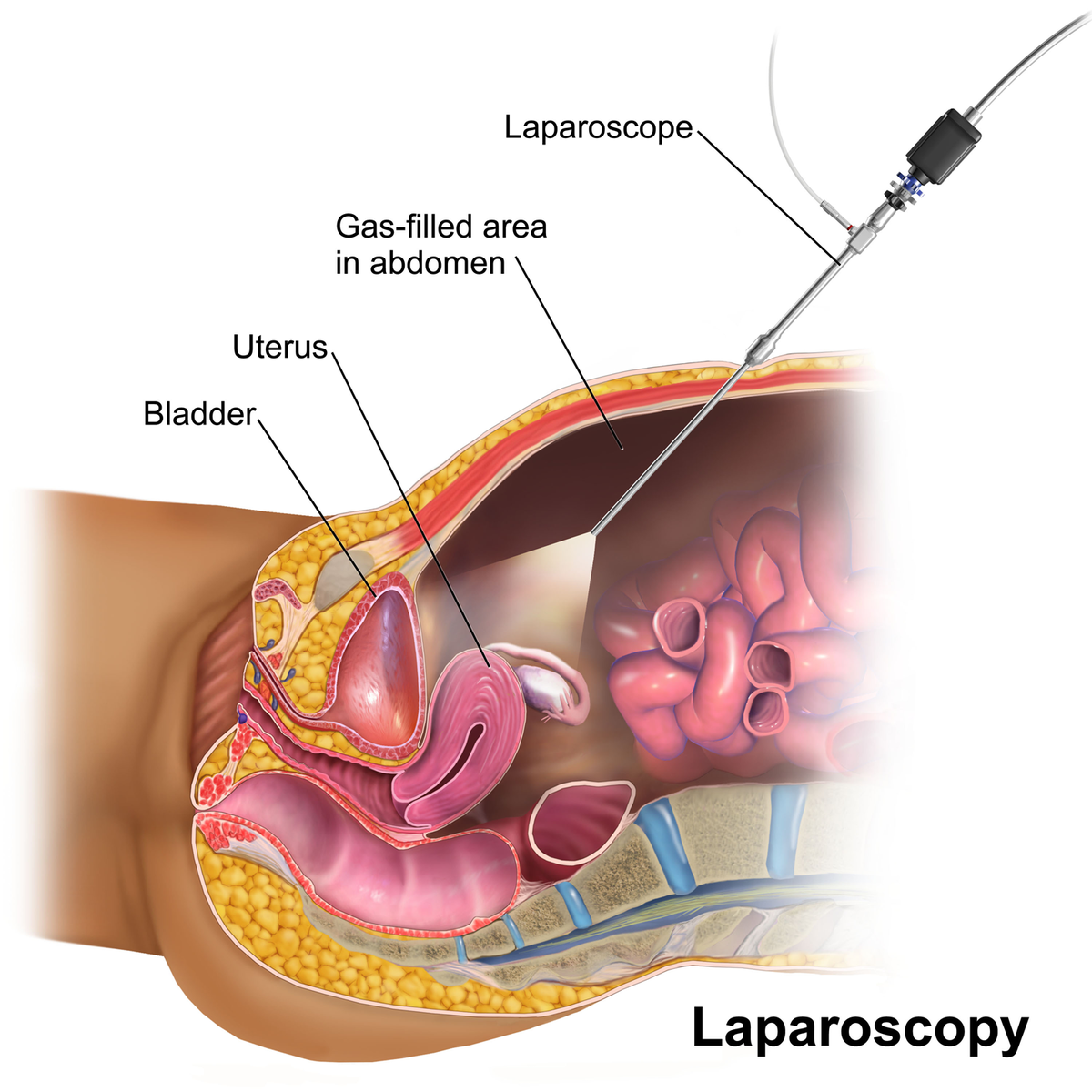In recent years, laparoscopic surgery has emerged as an important technique in the field of cancer treatment. It is a minimally invasive surgical approach that can be used to treat specific types of cancer, particularly gynaecologic cancers (cervical, ovarian, endometrial) as well as cancers of the kidney or colon. This article explores the advantages and diverse applications of laparoscopic surgery in cancer treatment.
Introduction to Laparoscopic Surgery
Laparoscopic surgery, also known as minimally invasive surgery, involves the use of small incisions through which a laparoscope – a thin tube with a camera, and surgical instruments are inserted. This allows surgeons to perform complex procedures with higher precision while minimizing disruption to surrounding tissues. Increasingly, cancer treatment centres across the country are relying on laparoscopic surgery for both diagnosis and treatment, especially in cases where a minimally invasive approach is needed. Onco-Life Cancer Center, situated in Maharashtra, India is one such cancer hospital that hosts some of the best laparoscopic surgeons in Pune, ensuring top-tier care for patients.
Advantages of Laparoscopic Surgery in Cancer Treatment
Reduced Recovery Time
One of the most significant benefits of laparoscopic surgery is the shorter recovery period. Patients undergoing this minimally invasive approach typically experience less postoperative pain, reduced hospital stays, and quicker returns to normal activities when compared to traditional open surgery.
Smaller Incisions and Less Scarring:
The use of small incisions in laparoscopic procedures not only translates to minimal scarring but also lowers the risk of infection. The cosmetic advantage afforded by laparoscopic surgery is particularly beneficial for patients undergoing surgery for cancers in visible areas.
Lower Risk of Complications:
Minimally invasive techniques employed in laparoscopic surgery result in less blood loss and a decreased likelihood of complications during and after the procedure. Not only does this make laparoscopic surgery a safer option for many cancer patients, but also offers reassurance to them amidst the challenging terrain of cancer treatment.
Common Types of Laparoscopic Cancer Surgeries
Laparoscopic Colorectal Surgery
Colorectal cancer is one of the most common types of cancer treated with laparoscopic surgery. Laparoscopic approach for colorectal cancer allows the precise removal of tumors with minimal impact on the patient’s digestive system.
Laparoscopic Hepatobiliary Surgery
For cancers of the liver, gallbladder, and bile ducts, laparoscopic surgery offers a targeted method to remove malignant tissues while preserving healthy portions of the organs.
Laparoscopic Gynaecologic Surgery
Cancers of the reproductive organs, such as ovarian and endometrial cancers, can be effectively treated with laparoscopic techniques. The use of laparoscopy for gynaecologic cancers often results in better outcomes and fewer side effects.
Laparoscopy in Cancer Diagnosis and Staging:
Laparoscopic surgery is not only pivotal in the treatment of cancer but also plays a crucial role in its diagnosis and staging.
- Diagnostic Laparoscopy:
Diagnostic laparoscopy allows surgeons to directly view the abdominal and pelvic cavities to detect abnormalities that might not be visible through non-invasive imaging techniques. It involves the insertion of a laparoscope through a small incision, providing real-time, high-definition visuals of internal organs. This technique is especially useful for identifying small tumors, assessing the spread of cancer, and obtaining tissue samples for biopsy. Laparoscopy is often used to diagnose and treat small tumors linked to liver cancer, cervical, ovarian and endometrial cancer, as well as cancers of the kidney, gall bladder and pancreas. - Staging Laparoscopy:
Accurate staging of cancer is essential for determining the most appropriate treatment plan. Staging laparoscopy helps in evaluating the extent of cancer spread within the abdomen and pelvis. It allows for the assessment of peritoneal surfaces, liver, lymph nodes, and other structures to ascertain whether cancer has metastasized. This method is particularly beneficial in staging cancers like gastric, pancreatic, and ovarian cancers.
Laparoscopic surgery has emerged as a cornerstone in the landscape of cancer treatment, offering a plethora of advantages and diverse applications across various malignancies. From reduced recovery times to enhanced surgical precision, the merits of this minimally invasive approach are undeniable.
Additionally, its significant role in cancer diagnosis and staging can help create comprehensive and tailored treatment plans for each patient.
For those seeking the best laparoscopic surgeons in Pune, Onco-Life Cancer Center with its combination of advanced medical infrastructure and experienced professionals, is your best choice to ensure optimal care and superior treatment outcomes. Embrace the benefits of laparoscopic surgery and choose Onco-Life Cancer Hospital in Pune for your cancer treatment journey.

